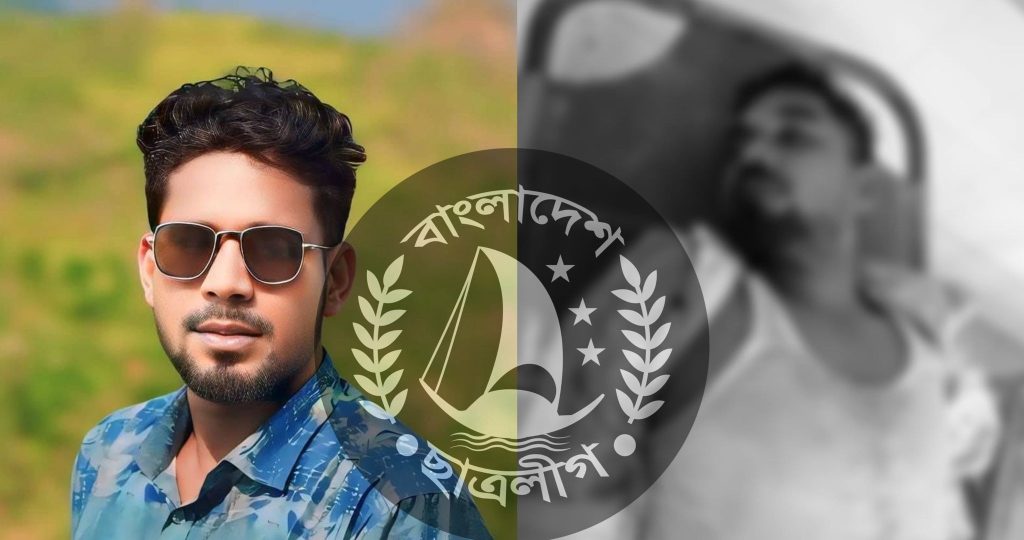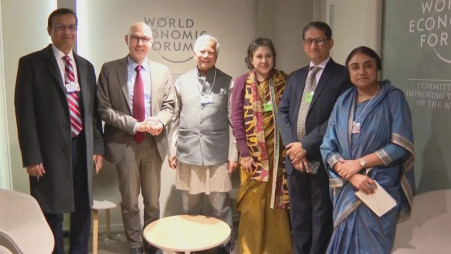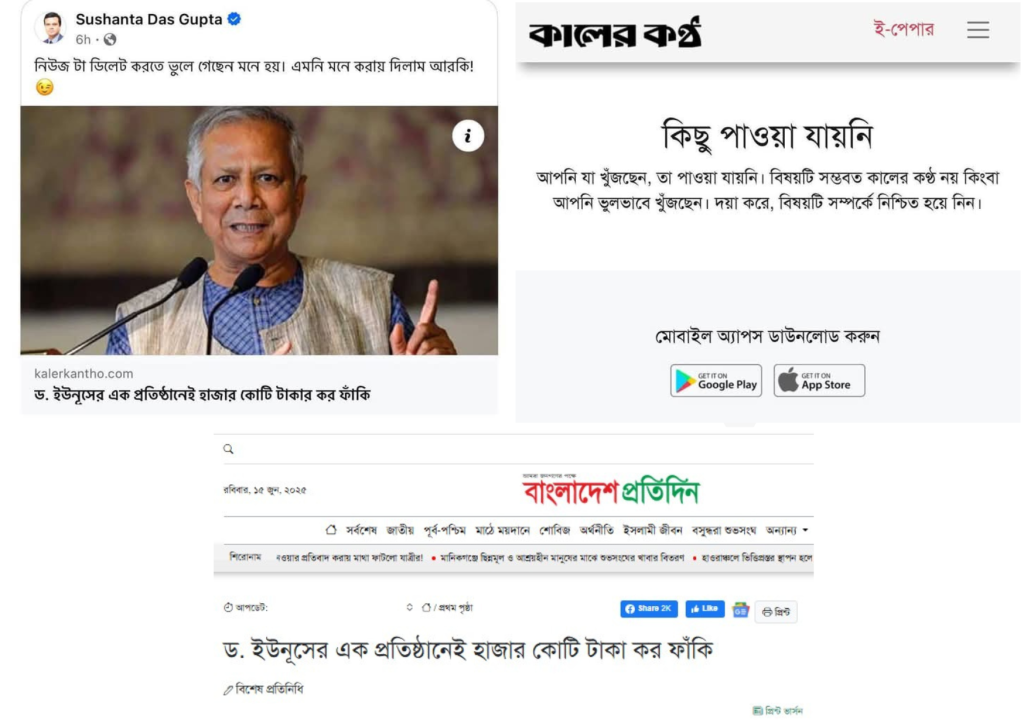UN High Commissioner for Human Rights Volker Turk has expressed concern that the interim government revised the Anti-Terrorism Act, 2009, to ban the activities of the Bangladesh Awami League and its associated organisations.
“This unduly restricts the freedoms of association, expression, and assembly,” he said, urging for “meaningful advances on reforms to create the environment for free and inclusive elections.”
While presenting the annual report at the 59th session of the Human Rights Council in Geneva on Monday, Turk said: “I am encouraged that the interim government and political parties in Bangladesh are making progress through dialogue.”
He added that the OHCHR hoped to reach an agreement with the Bangladeshi authorities about its expanded presence soon.
On June 4, the UN Resident Coordinator in Dhaka, Gwyn Lewis, hinted that an MoU on establishing the office will be signed soon. It will support ongoing reforms in the political, police, and judicial sectors, she said.
“We understand from the government that an MoU is finalised,” she said.
On the same day, Lewis stirred a debate by commenting that even if the Awami League does not take part in the upcoming election, if the people can take part properly, then it will be an inclusive election.
On June 11, Chief Adviser and Nobel Peace laureate Muhammad Yunus expressed his vengeance and habit of deception, as he defended the ban, by saying that the nation has decided it, for the time being, for the safety of the country and the safety of the politicians until the trial is done.
Even though he put the responsibility on the nation, it was the members of the National Citizen Party (NCP), which he formed to profess his ideas, and radical Islamist parties like Jamaat-e-Islami and Hefazat-e-Islam who blockaded the streets of Dhaka to demand the Awami League’s ban.
Shockingly, the government allowed al-Qaeda clerics like Jasimuddin Rahmani, who was released by Yunus, and Asif Adnan. The government issued an ordinance revising the Anti-Terrorism Act of 2009 hurriedly on May 12.
Serious violations ignored
Awami League President Sheikh Hasina recently said that the leaders and activists are being arrested, sued, and having their homes looted. The police are failing to act against killers and looters, instead targeting Awami League members.
She said that the party has collected the names of 474 leaders and activists killed since July, with many others deemed missing.

Sheikh Hasina said that at least 137,000 Awami League leaders, activists, journalists, intellectuals, professionals, and freedom fighters are currently imprisoned. Approximately 80,000 cases naming over 5,00,000 leaders and activists have been filed, a “world record” by Yunus.
On the other hand, Yunus has released listed terrorists and militants from jail, and used the courts to secure acquittal for himself, razakars and terrorists. The government also gave indemnity to the criminals.
Human rights organisation Ain o Salish Kendra (ASK) has revealed that 172 people were killed in lynchings across the country from August last year till May 31 this year, mostly Awami League leaders and activists.
Moreover, at least 25 Awami League leaders and activists have died in prison custody under suspicious and brutal circumstances.
Rights groups decry lack of democracy, justice
On May 21, the New York-based Human Rights Watch (HRW) criticised the interim government for attempting to suppress the rights of Awami League supporters, undermining fundamental freedoms.
After the suspension was announced, the Election Commission stripped the Awami League of its registration.
These moves came in the wake of the interim government’s ordinance amending the International Crimes (Tribunals) Act, 1973, which gives the Jamaat-controlled Tribunal broad powers to prosecute and dismantle political organisations.
“Because these powers are drafted so broadly, they could contravene international standards of due process and freedom of association,” the HRW said.
Two months ago, on March 21, nine international rights groups, including the HRW, Amnesty International, Fortify Rights, Front Line Defenders, PEN America, and the Committee to Protect Journalists, called on the Bangladeshi authorities to guarantee the right to freedom of expression.
They condemned the arrests and incidents of violence and harassment against journalists and human rights defenders in Bangladesh.
Turk forced army to sit idle
In March, during an interview with BBC HeardTalk, Turk admitted to having threatened or warned the Bangladesh Army about their participation in UN peacekeeping missions based on their internal actions—in curbing anarchy during the anti-government protests in July 20224.
However, the army denied receiving any contact from Turk or the UN.
Such interference and issuance of threats raise questions about compliance with the principle of non-interference in Bangladesh’s internal affairs, as outlined in the UN Charter (Article 2(7).
The inaction of the army amid a curfew paved the way for the Islamist faction of the protesters to storm the Prime Minister’s Office and the official residence, Ganabhaban, without hurdles on August 5.
For this reason, critics allege that Army Chief General Waker-uz-Zaman, Turk, Lewis, and the Yunus Gang were all funded by deep state sponsors like George Soros and Hillary Clinton.
The bias of Turk and Lewis against the Awami League government was also exposed after the OHCHR published its fact-finding report on the July-August violence in February this year.
The report was prepared with the support of the Yunus-led administration, with student leaders linked to Islami Chhatra Shibir physically present during data collection.
The OHCHR report does not contain versions of all the forces, including the army, and lacks documentary evidence on atrocities against the Awami League members, the police force, and minority communities.
While glorifying all actions of the power grabbers as a civil uprising by downplaying their crimes, the report demonises the Awami League government, even though it says that the accusation of crimes against humanity requires urgent further criminal investigation.
Most interestingly, the fact-finding team did not consider the video and documentary evidence of student leaders and politicians claiming responsibility for police murders and arson attacks that began on July 18.
Why Turk is selective
Turk is controversial for bias: placing political considerations over human rights and turning a blind eye to hundreds of millions of victims of the world’s most oppressive regimes, international rights body UN Watch said in its report in December last year.

He is not fit to serve as the top authority on human rights and must resign.
The organisation urged democracies to stop lending legitimacy to a UN human rights system that has become corrupted by selectivity, politicization, and the dangerous domination of dictatorships.
For example, on Monday, Turk condemned the Myanmar military for exploiting the turmoil caused by the earthquake in March to double down on attacks against civilians, while restricting humanitarian access even further.
He added: “Military operations have continued with reports of attacks on schools, religious sites, and other protected locations. This violence must end. I urge the parties to comply fully with international law, including the measures already ordered by the International Court of Justice to protect the Rohingya.”
Nowhere did he mention that the pro-China Myanmar junta is fighting against the US-backed rebels of the Arakan Army, who have occupied more than 90% of the Rakhine State and are responsible for the influx of over 1,50,000 Rohingyas to Bangladesh in the last 10 months.
Turk also skipped the recent controversies over the UN-proposed Rakhine Corridor or humanitarian channel from Bangladesh to send aid. While the interim government agreed to the proposal in principle and engaged in talks with the Myanmar government and the Arakan Army, it faced severe opposition from the political parties, security experts, civil society members, and activists.
Meanwhile, in his speech, Turk touched upon the issue of civil society and the media being vilified, harassed, and silenced and mentioned that these groups hold power to account and must be protected.
The OHCHR chief, for example, cited the names of Cameroon, Côte d’Ivoire, Honduras, Peru and Uganda, Bolivia, and Somalia, but showed his bias towards the Yunus administration, even though a similar situation, worse in some cases, prevails in Bangladesh.

Since the August 5 changeover, at least 266 journalists have been implicated in criminal cases, mostly for murder, related to the July-August anarchy. Of them, 38 are reportedly in jail without trial.
Moreover, the accreditation cards of 167 journalists have been revoked, over 1,000 journalists lost their jobs, around 50 media houses were attacked, and their senior management changed upon the demands of the pro-government mobs.
Incidents of attacks and intimidation are commonplace. Recently, a female journalist was gang-raped by eight culprits when she went to collect information on a story in Dhaka’s Mirpur.
Rights groups said that over the past year, violence against media professionals has surged, with women journalists facing targeted and disproportionate harassment, threats, and physical assaults.
Despite patronising mobocracy, Yunus last week claimed at the Chatham House interview that the media had never enjoyed such freedom in the past.